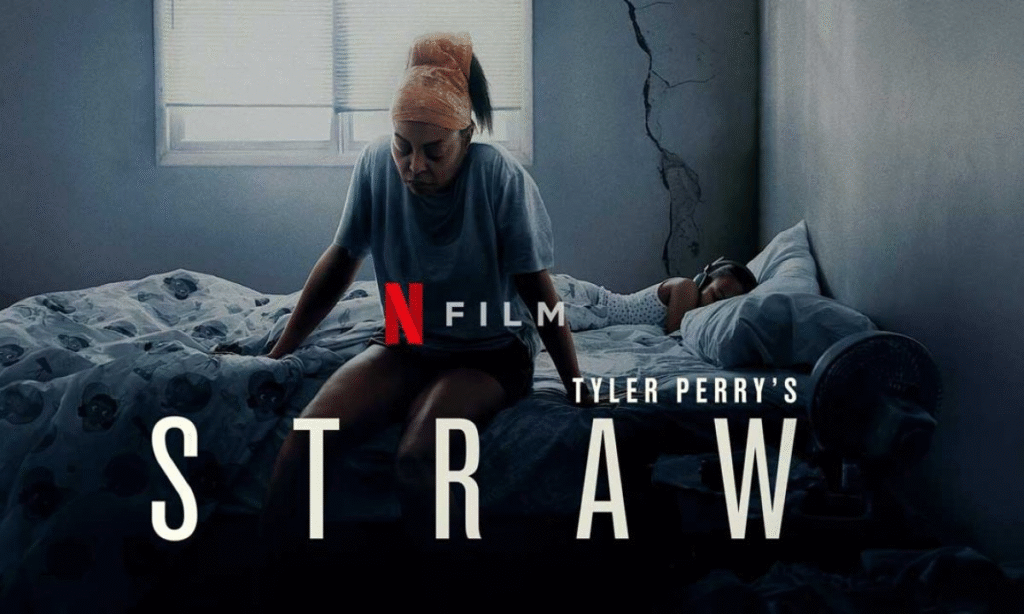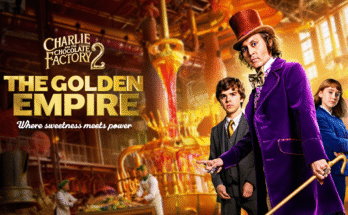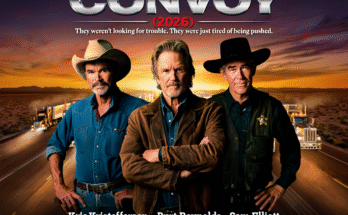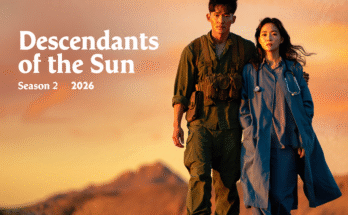In Straw, Tyler Perry trades melodrama for raw realism, stepping out of his familiar cinematic rhythm to deliver a staggering, stripped-down portrait of injustice and endurance. Gone are the comedic beats and feel-good arcs — in their place stands a searing, unrelenting narrative that burns with urgency. This is Perry at his most daring, most unflinching, and possibly, most important.

Taraji P. Henson gives the performance of her career as Janiyah Wiltkinson, a woman on the edge of collapse, yet too exhausted to even scream. Over the course of a single 24-hour spiral, we watch her life unravel: the loss of her job, the criminal accusation, the frantic search for her daughter’s medication, and the moment the world decides to stop listening. Henson doesn’t act; she inhabits. Her every breath is weighted with silent rage, fear, and desperate love.
Perry directs with a new kind of discipline — no broad strokes, no emotional shortcuts. The camera lingers on empty rooms, cracked phone screens, cheap fluorescent lights. It watches, quietly, as systems fail people who were never given a fair start. The film’s minimalism becomes its strength; this is not an event movie, but a slice of real life sharpened into a blade.

Supporting performances deepen the emotional terrain. Sherri Shepherd’s turn as a worn-down ER nurse is subtle and soulful. Teyana Taylor brings raw fire as Janiyah’s sister, whose own survival depends on keeping her heart cold. And in one of his most serious roles to date, Sinbad plays a community elder whose quiet wisdom cuts through the noise like thunder.
What makes Straw so devastating isn’t just what happens to Janiyah — it’s how utterly familiar it all feels. The film isn’t about one woman’s fall; it’s about how institutions are designed to let people fall through. It shows how exhaustion becomes normal, how despair becomes background noise, and how invisible someone can become when they have nothing left to give.
Shot in just four days on handheld cameras, the film’s documentary-like realism creates an almost unbearable intimacy. You feel the cold of the night bus, the sting of a courtroom glare, the sterile indifference of a social worker’s clipboard. Every frame is honest — sometimes brutally so. Perry uses this visual austerity not as a limitation, but as a lens to focus attention where it matters most: on the human face of suffering.

And yet, Straw is not a tragedy. It is a revolt. Beneath the heartbreak lies a current of resistance — quiet, unpolished, but unmistakably present. Janiyah may be broken, but not erased. She may bend under the weight of the day, but when morning comes, she stands. That simple act — standing — becomes the film’s most powerful declaration.
The screenplay is spare but razor-sharp, full of silences that speak louder than monologues. Perry’s social commentary is woven into dialogue that feels overheard rather than scripted, revealing the racism, classism, and systemic neglect embedded in everyday transactions. Nothing is overstated, and that’s what makes it hit so hard.
Straw is not an easy watch. It’s not meant to be. It’s a film that sits with you, shakes you, and dares you to look away. But if you don’t — if you stay with it — you’ll find not just pain, but strength. Not just anger, but clarity. Perry has crafted something vital here: a modern-day The Bicycle Thief set in the forgotten corners of America.

By the end, Straw doesn’t ask for your sympathy. It demands your recognition. And that, perhaps, is the most powerful thing a film can do.



